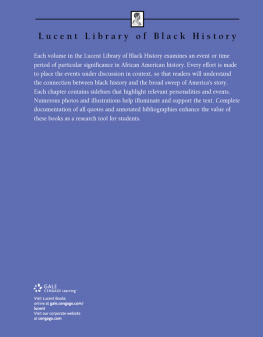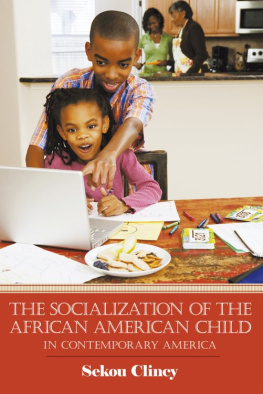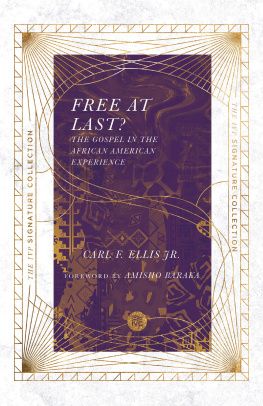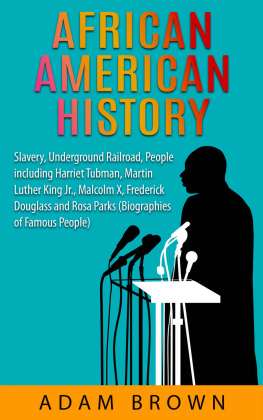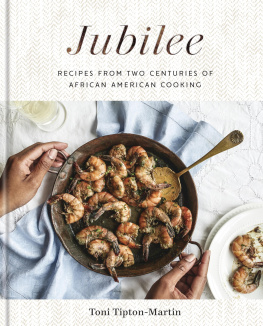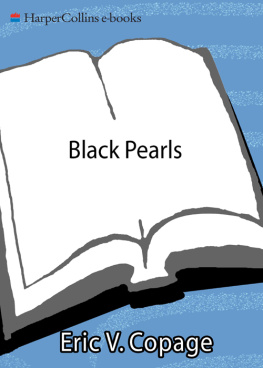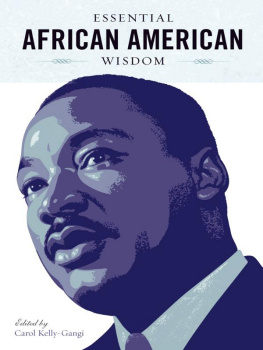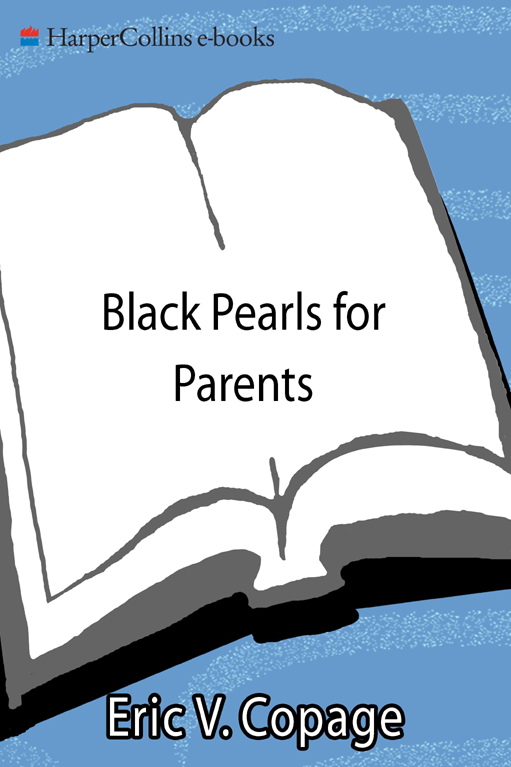BLACK PEARLS
for
PARENTS
Meditations, Affirmations, and Inspirations
for African-American Parents

Eric V. Copage

To my father, John E. Copage,
whom I respect, admire, and love
Contents
INTRODUCTION

Parentsin fact, all those who guide our young peopleare like athletes. Look at it this way: An athlete, whether playing a pick-up game in the neighborhood or batting in the last game of the World Series at Yankee Stadium, aims to win. But it is the rarest of athletes who wins every time. If the player happens to lose that day, he or she doesnt stop competing. The contender doesnt throw his or her mitt into a garbage can, hang up the ice skates in a closet, return the track shoes to their box, or let the tennis racket or golf clubs set to gather dust. The athlete analyses the losing performance, goes to sleep, and wakes up the next morning determined to win!
And so it is with parenting. None of us gets it right all the time. But all of usfathers and mothers, foster parents, stepparents, grandparents, cousins, aunts and uncles, older siblings, and teachers and counselors, toocan wake up each morning determined to do our best. As the parent of two teenagers, Ive learned that lesson over and over in the decade since this book was first published.
Like top athletes, all adults are role models, whether we like it or not. And whether we like it or not, toddlers, teenagers, and young adults pay attention to what we do, not what we tell them to do. In the daily whir of housekeeping, making a living, and dealing with the myriad distractions in life, its easy, even for the most conscientious of us, to forget our awesome responsibility.
The power of Black Pearls for Parents is that the words contained within its coversgleaned from scores of the most accomplished black men and women throughout time and across the African Diasporahelp us remember our daily duty to our next generation. The words of our sages (even if the sages themselves were not biological parents) provide guidance, wisdom, and reassurancethe foundations of the confidence needed to carry on. While the book will not magically enable the reader to be the perfect guardian or to produce perfect children, it will convey the strength of what I call Muscular Black Pridethat is, the use of words to inspire us to accomplish great things.
The reader shouldnt be shy about letting the youngster around you know you are using this book. Some of the exercises are even meant to be done in tandem, with the child, while others are meant to ignite conversation between adult and child. A few, however, such as the February 2 meditation on introspection or the April 5 meditation on stress, are more personal, and address mainly the adults needs. Sharing Black Pearls for Parents with your child sends an important message: that books are valuable resources.
If your child seems too young or too old for a particular exercise, modify it so he or she can participate in the spirit of that days thought. If you are the parent or guardian of an infant or preschooler, do the exercises yourself in preparation for the time when you can do them with your child. Or share the thoughts and exercise with a young relative or neighbor. Of course, all suggestions in the book are applicable regardless of whether a child is male or female, which is why Ive alternated the gender of the child throughout the book.
The world around us is changing. India (a nation that until relatively recently suffered under the boot of European domination), China, and Korea are moving toward the center of the world stage. And by many accounts, Brazil is poised to be the next global power player. For nearly three decades Japan has been renown for its top-drawer education and quality consumer products. The number of black, brown, and Asian immigrants to this country has grown by leaps and bounds over the past forty years.
In the midst of this increasingly multicultural landscape, where people of color have clout as well as numbers, we of African descent must ask ourselves what our culture, our race, will mean in the changing global community. What values will we as teachers and role models endow to our children as black values? What values will allow our children to endure the ideological fads of our society, as well as their own evolving personal philosophies? What values will permit our young Black Pearls to prosper in this brave new multihued world? And how shall we show our dedication to those values through our actions.
Life is neither fair nor safe nor easy. Obstacles are often thrown in our path. Let us prepare our children for that. But let us not forget to remind themand ourselvesthat life is also wondrous; life is also sweet. However, to partake fully in the wondrous sweetness of life requires discipline and vision. Let us encourage our children through our words and deeds to hit the ball out of the park, score the touchdown, and cross the finish line first. Let us inspire our children to Muscular Black Pride through our own acts of Muscular Black Pride.
Eric V. Copage
Montclair, New Jersey
March 2005
FAITH

Faith can give us courage to face the uncertainties of the future.
Martin Luther King, Jr.
Faith is, perhaps, our greatest weapon. It can keep us strong in times of stress, keep us motivated to build the kinds of lives we dream for ourselves and our families.
Yet, strange as it may seem, we are often our own worst enemies. We adopt cynical attitudes that cheat us of potential fulfillment; we abandon hope for positive change and learn to live with the inevitable bitterness. Our children suffer and, like sponges, absorb our despair.
Without question, we need to be relentless in shoring up our faith. Daily meditation and positive thinking can help. Distancing ourselves from negative individuals and actively seeking out inspiration (through self-help books and biographies, through magazines and lectures) can also fortify us. So, too, can prayer.
On this day, I will take five minutes to talk to my child and communicate to her the faith I have in her and in our people.
January 1
BLACK IDENTITY

Celebrating Kwanzaa is not an end in itself. Neither is having an African medallion swinging from your neck, wearing a kente cloth hat, or giving your children African names.
Eric V. Copage
A fitting quote for the day after Kwanzaa, no? While our annual celebration may be over, the goals and ideals it emphasizes and engenders should help us accomplish all we have to do throughout the year. After all, our pride in being black cannot substitute for pride in our


